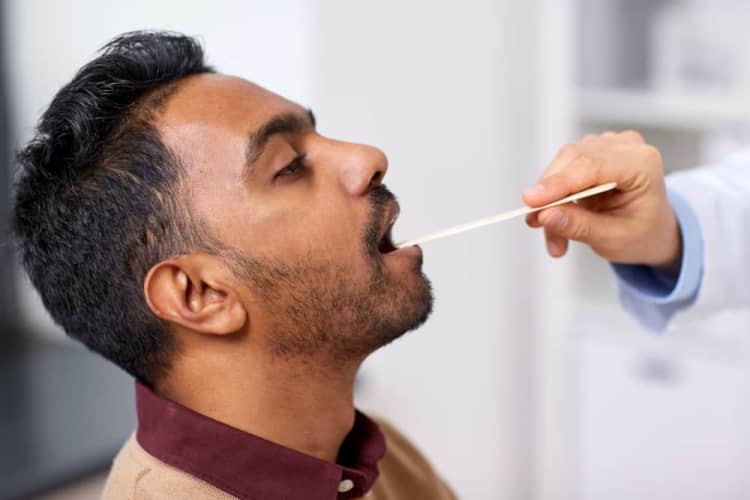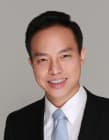Is something wrong with your head or neck area? Where should you go to talk about these kinds of symptoms? Let me accompany you to see an otorhinolaryngology surgeon!
What is an Otorhinolaryngology Surgeon? What do they do?
An otorhinolaryngologist is a medical specialist who has completed specialist training after completing the basic medical degree. Oto-Rhino-Laryngology is Ear-Nose-Throat or ENT for short. The field of otorhinolaryngology covers conditions of the ear, nose and throat as well as the head and neck region. [1]
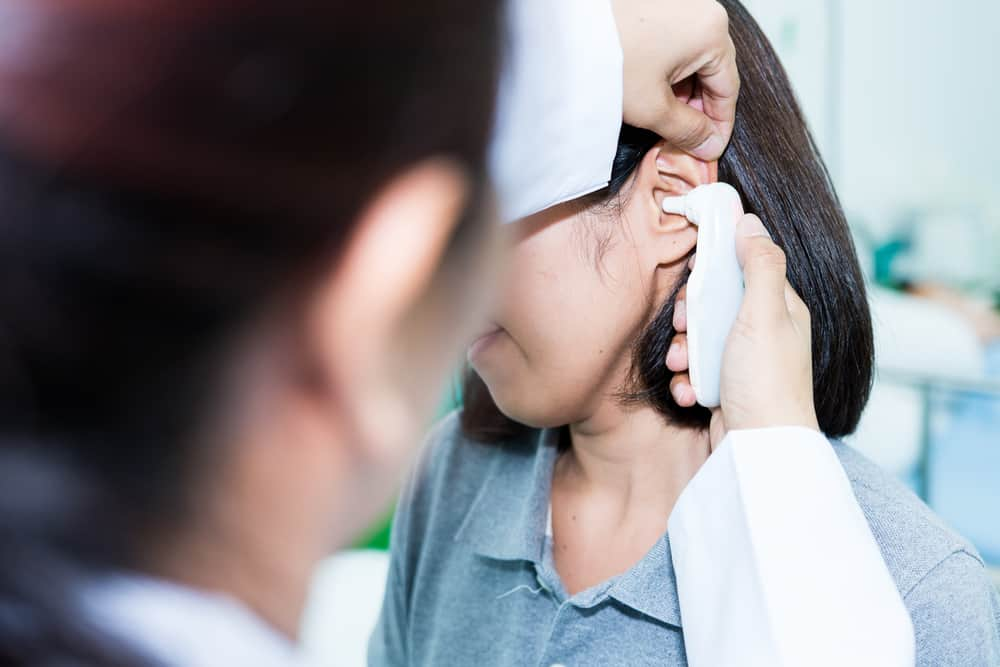
Otorhinolaryngologists are both physicians and surgeons. Many of the patients who consult with me have ENT conditions that can be treated medically. Some require surgery when medical treatment has failed and some have conditions that can only be treated by surgery.
As an otorhinolaryngologist, I have the privilege of looking after patients over a wide range of ages, from children to the elderly. Sometimes, my patients are from different generations within the same family. One of the other aspects that I find fascinating is the intimate relationship between the ear, nose, and throat, in terms of their physical and functional connections. Parents may bring their child in for a blocked ear, but we may find that allergy and blockage of the nose and throat are the underlying causes. A patient may also consult me because of snoring, but in the process of assessing the cause of snoring it may turn out that the he/she has a combination of factors compromising nasal patency, like nasal polyposis and/or sinusitis.
It has been said that an ENT surgeon has the widest repertoire of surgical approaches. For example, traditional open surgery is employed to excise the vast majority of tumours of the neck. However, to repair a perforation of the eardrum, an operating microscope and microsurgical instruments are required. In the nose and sinuses, endoscopic surgery is now the standard for almost all conditions, including the removal of tumours. More recent advances include endoscopic and robotic-assisted approaches to the throat and in head & neck surgery.
Otorhinolaryngologists may also specialize in the following areas:
Sleep medicine

Some sleeping disorders such as sleep apnoea can be attributed to abnormalities in the nose (e.g., septum deviation) or obstruction in the throat and the airway passage. Thus, some cases can be covered by ENT Specialists.
Allergy

Otorhinolaryngologists are expected to learn about the pathology of allergies. They are also trained to properly assess and treat allergies using treatment options that can range from medication to immunotherapy. They are also responsible for the prevention and management of the condition.
Head and neck
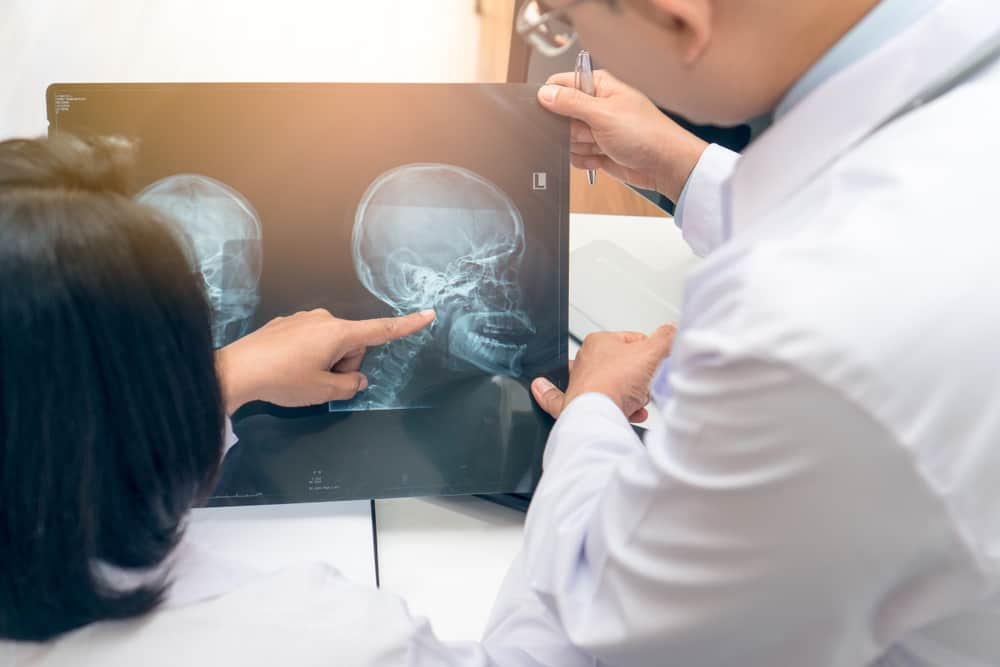
Otorhinolaryngologists trained in head and neck treatment and management are expected to have in-depth knowledge of oncology. They provide scientifically proven treatment and therapies and also perform surgery to remove both benign and malignant tumours, treat congenital deformities, and provide trauma care.
Facial surgery
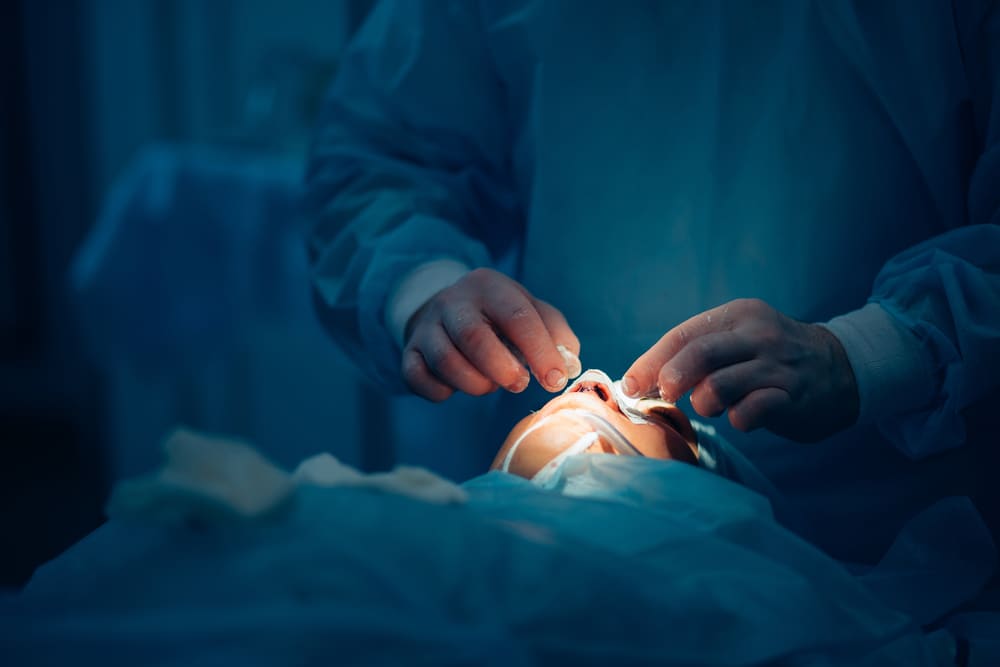 Surgery can be either reconstructive in nature, which aims for the restoration of the appearance or function of an affected body part, or plastic, which enhances the look of a body part, especially the nose and ears.
Surgery can be either reconstructive in nature, which aims for the restoration of the appearance or function of an affected body part, or plastic, which enhances the look of a body part, especially the nose and ears.
Pediatric Otorhinolaryngology

These are Otorhinolaryngologists who work with children whose ages range from 0 to 12 years old. More often than not, they deal with congenital defects, trauma, and infections affecting the ears and throat.
Are there different types of Otorhinolaryngology Surgeons?
Otology
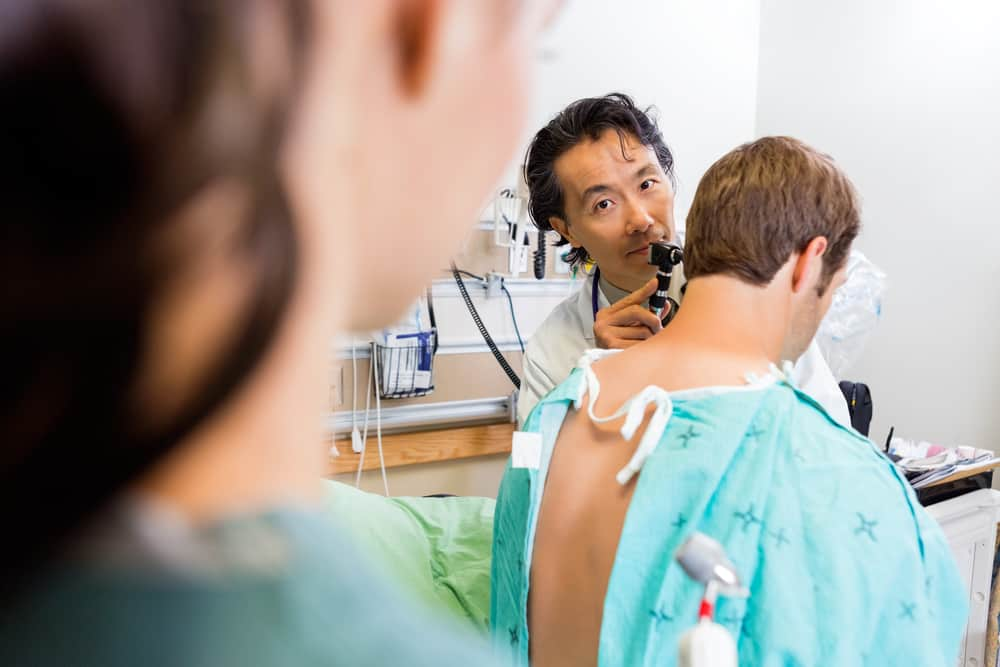
This refers to the diagnosis and treatment of infections, disease, and damage to the ear to improve hearing and balance. This includes cochlear implant surgery, which is the implantation of a small complex electronic device into the inner ear which stimulates the auditory nerve. This can provide a sense of the sound of deaf people.
Rhinology
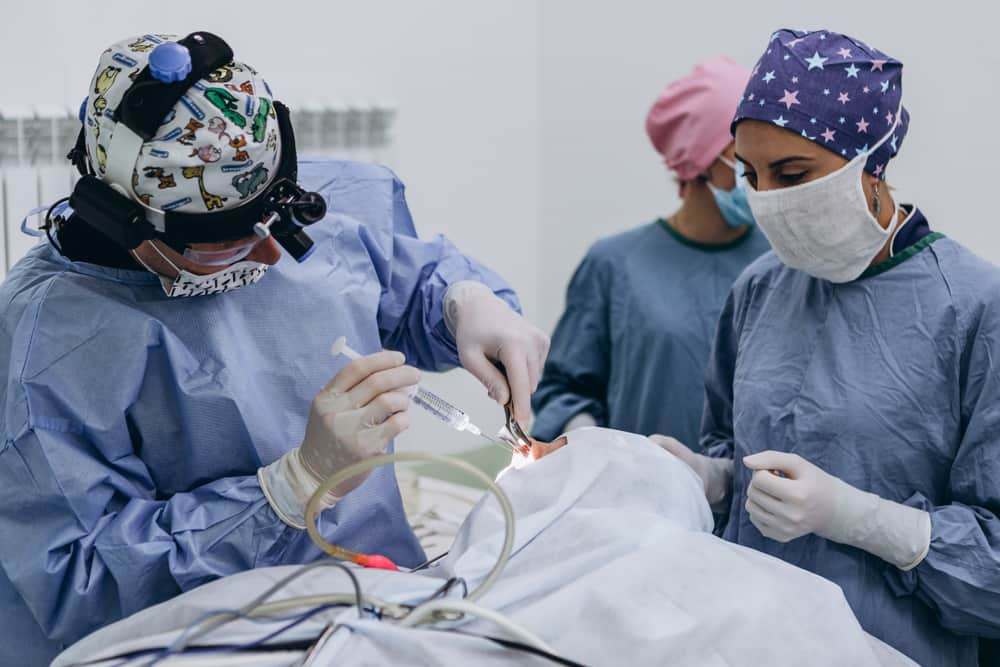
Treatment of all aspects of nose and sinus disorders including allergy, infection inflammatory conditions and tumours. The specialist will also operate on the rare tumour of the skull base including pituitary tumours.
Laryngology

Treatment of disease and disorders of larynx and throat, such as vocal fold nodules, voice problems (including overuse/misuse), and cancer.
Head and neck surgery
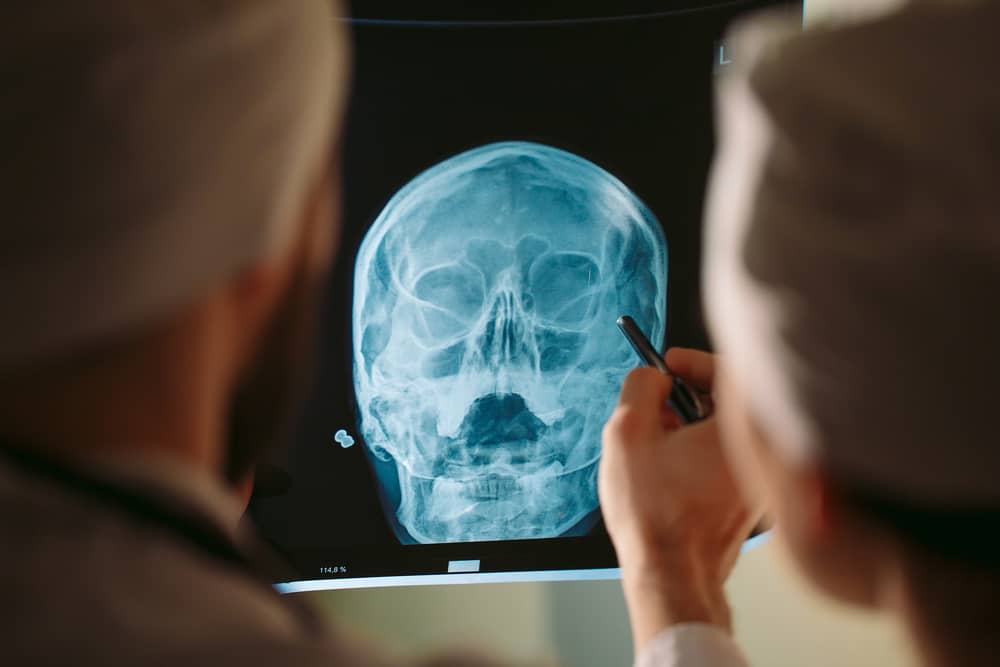
The treatment of benign and malignant diseases of the head and neck, including lymph, salivary, thyroid, and parathyroid glands.
Facial plastics
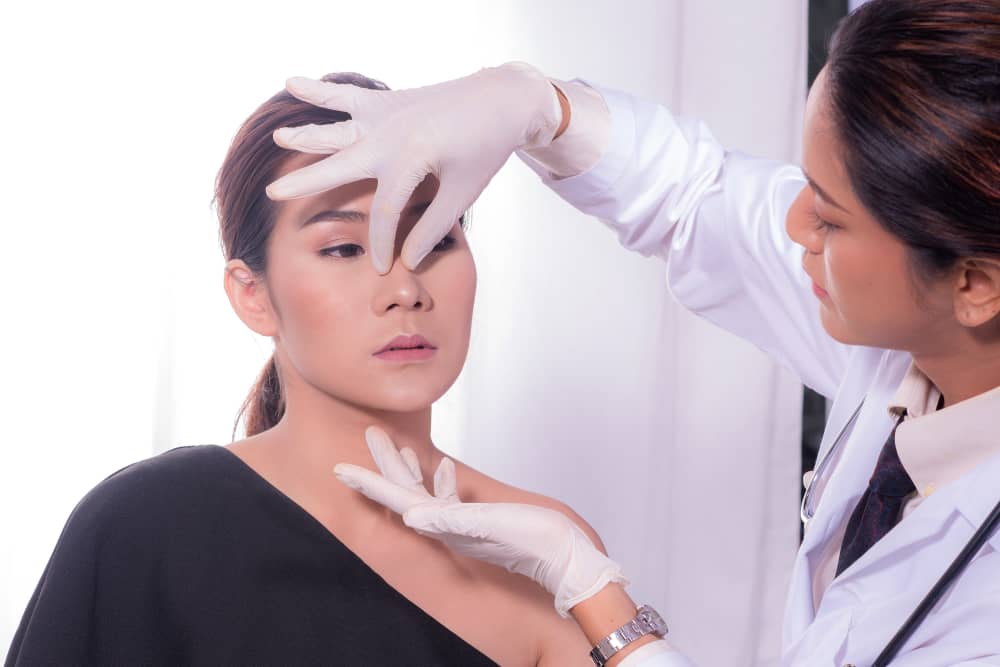
Aesthetic procedures including rhinoplasty, the correction and reconstruction of the form, function and aesthetic appearance of the nose, and pinnaplasty, the correction of protruding ears. The work also includes the reconstruction of facial defects. Plastic and oral and maxillofacial surgeons may also perform this type of surgery.
Thyroid and parathyroid

Thyroidectomy is the recommended procedure for patients with known or suspected thyroid cancer. Parathyroidectomy is the removal of one or more parathyroid glands which are overproducing a parathyroid hormone, PTH, resulting in high calcium.
Paediatrics

Some conditions are congenital and treatment is needed at a very young age. Treatments are wide-ranging and include cochlear implants and other implantable hearing devices, head and neck surgery and treatment for rare conditions including choanal atresia, where the back of the nasal passage is blocked by bone or tissue.
What special training do you have to go through to become an Otorhinolaryngology Surgeon?
Before I become an otorhinolaryngology surgeon I must complete 4 years of college and then 4 years of medical school. I must complete a residency program of 5 further years. A substantial amount of the time within the first year will be spent training in basic surgery, emergency medicine, critical care, and anaesthesia. [2]

Then as a resident, I will have an additional 51 months of progressive education in the speciality. They must spend the final year of the program as a chief resident within an approved institution.
What are the common conditions that fall within the remit of otolaryngologist?
Airway problems

Breathing difficulties can range from mild, such as stridor, to life-threatening, such as severe airway obstructions. A variety of different underlying conditions can cause these problems.
Cancers
These are the groups of cancer that affect the soft tissue organs in the head and neck region. The National Registry of diseases office states that nasopharyngeal cancer (nose cancer), thyroid cancer, and lymphoid cancer (which often occurs in the neck) rank in the 10 most common cancers in Singapore. [3]
Chronic sinusitis
 Chronic sinusitis occurs when the spaces inside your nose and head (sinuses) are swollen and inflamed for three months or longer, despite treatment. This common condition interferes with the way mucus normally drains and makes your nose stuffy. Breathing through your nose may be difficult, and the area around your eyes might feel swollen or tender. [4]
Chronic sinusitis occurs when the spaces inside your nose and head (sinuses) are swollen and inflamed for three months or longer, despite treatment. This common condition interferes with the way mucus normally drains and makes your nose stuffy. Breathing through your nose may be difficult, and the area around your eyes might feel swollen or tender. [4]
Cleft lip and cleft palate
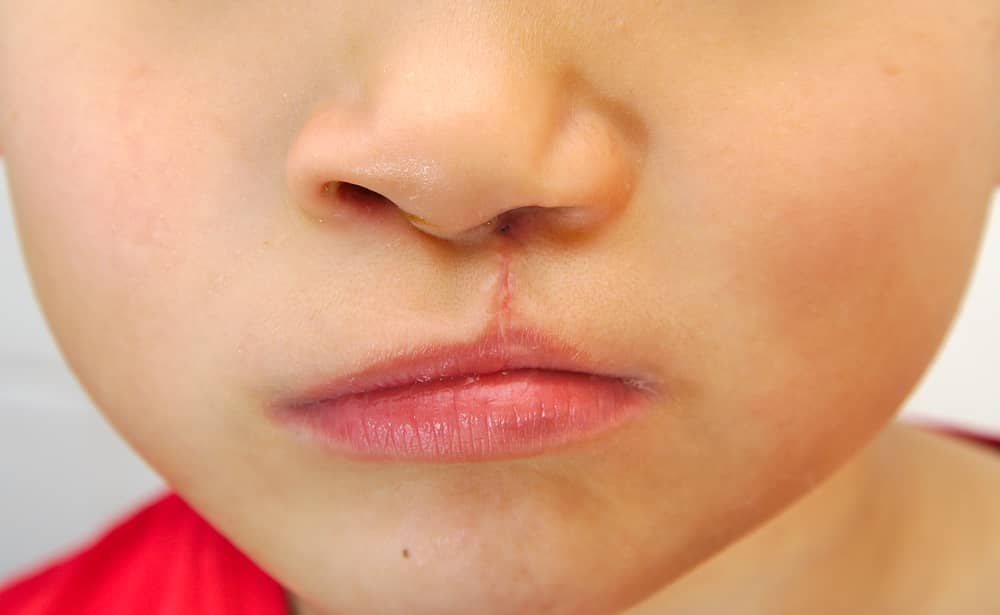 This is a split in the mouth in which the lip, palate, or both do not fully develop during fetal growth. Clefts can vary in size, ranging from those that cause minor problems to those that seriously interfere with eating, speaking, and breathing. [5]
This is a split in the mouth in which the lip, palate, or both do not fully develop during fetal growth. Clefts can vary in size, ranging from those that cause minor problems to those that seriously interfere with eating, speaking, and breathing. [5]
Deviated septum
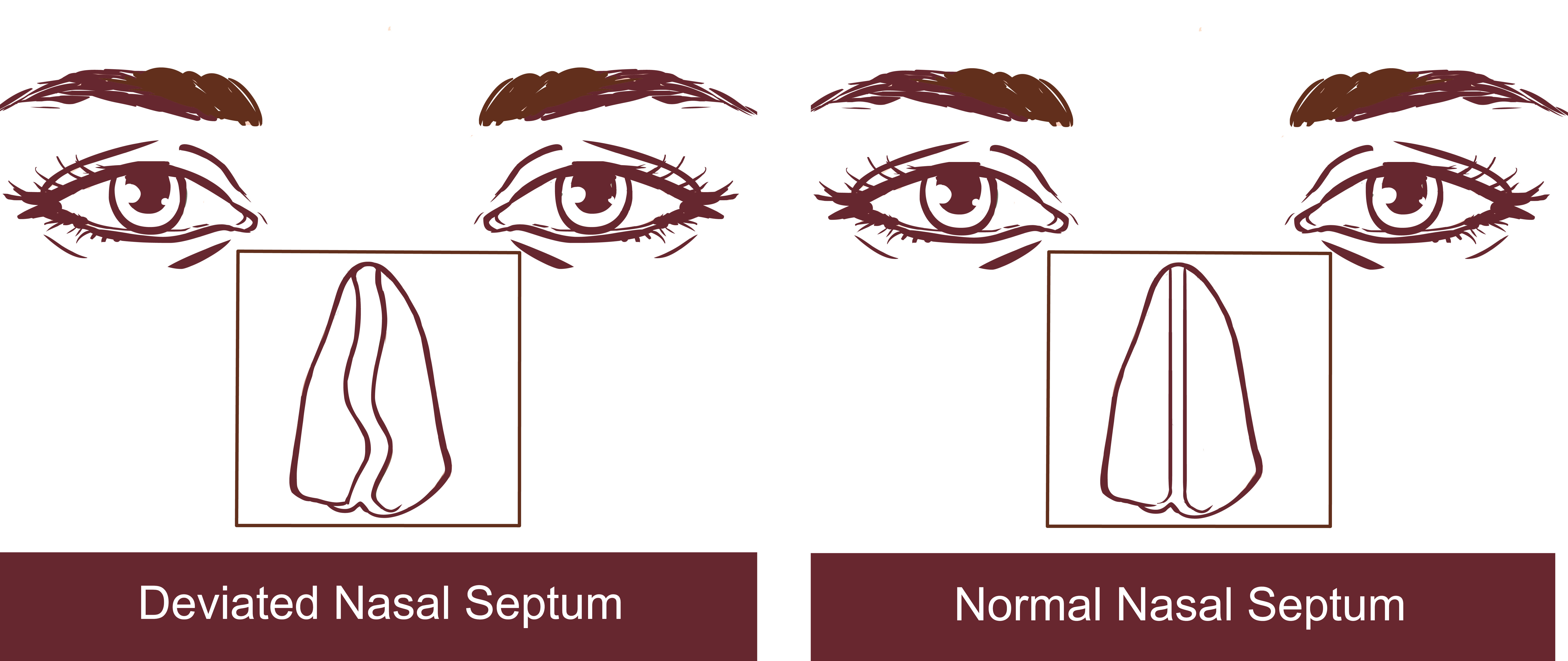 A deviated septum occurs when the thin wall (nasal septum) between your nasal passages is displaced to one side. In many people, the nasal septum is off-centre or making one nasal passage smaller. Treatment of nasal obstruction may include medications to reduce the swelling or nasal dilators that help open the nasal passages. [6]
A deviated septum occurs when the thin wall (nasal septum) between your nasal passages is displaced to one side. In many people, the nasal septum is off-centre or making one nasal passage smaller. Treatment of nasal obstruction may include medications to reduce the swelling or nasal dilators that help open the nasal passages. [6]
Drooping eyelids (Ptosis)
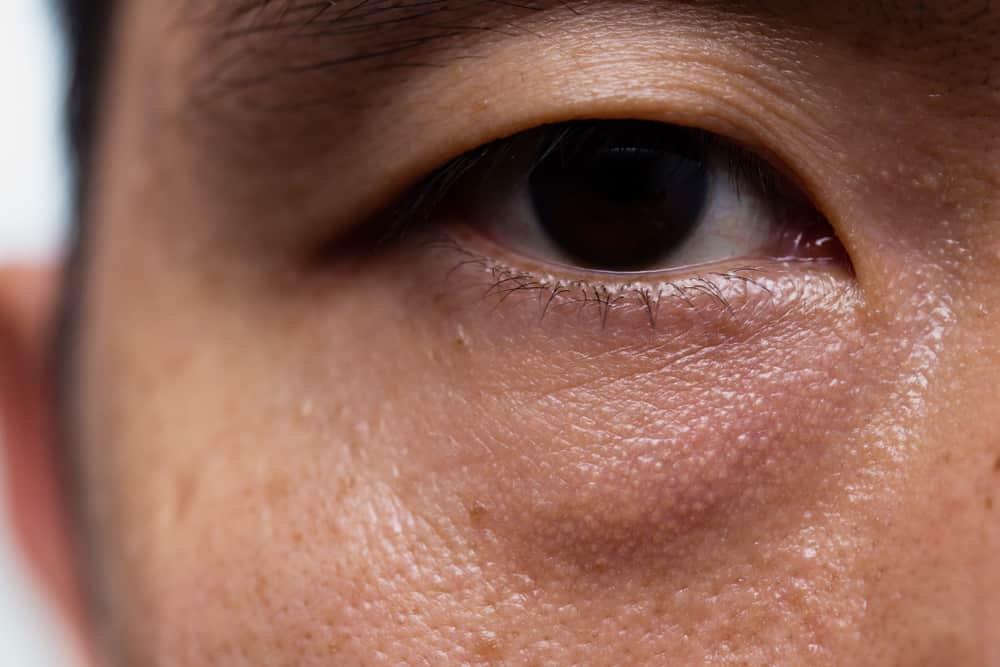 Excessive sagging of the upper eyelid can be part of the natural ageing process, but several different underlying conditions might also be responsible, such as diabetes, stroke, and tumours that affect nerves or muscle reactions. Drooping eyelids might sometimes obstruct vision. [7]
Excessive sagging of the upper eyelid can be part of the natural ageing process, but several different underlying conditions might also be responsible, such as diabetes, stroke, and tumours that affect nerves or muscle reactions. Drooping eyelids might sometimes obstruct vision. [7]
GERD

Gastroesophageal reflux disease is a condition in which stomach acid and other contents from the digestive tract travel up into the oesophagus. A ring of muscle known as the sphincter at the bottom of the oesophagus usually prevents the contents of the stomach travelling upwards. In people with GERD, this sphincter may be dysfunctional, which can lead to heartburn, chest pains, and difficulty swallowing.
Hearing loss
Loss of hearing can occur in people of all ages and has a variety of possible causes. Ageing, exposure to loud noise, viruses, heart conditions, head injuries, stroke, and tumours might all lead to gradual hearing loss.
Swallowing disorder
People of any age can have difficulty moving food, liquid, and saliva from the mouth to the stomach. This condition is called dysphagia and may cause discomfort, impair nutrition, and lead to coughing and choking.
Tinnitus
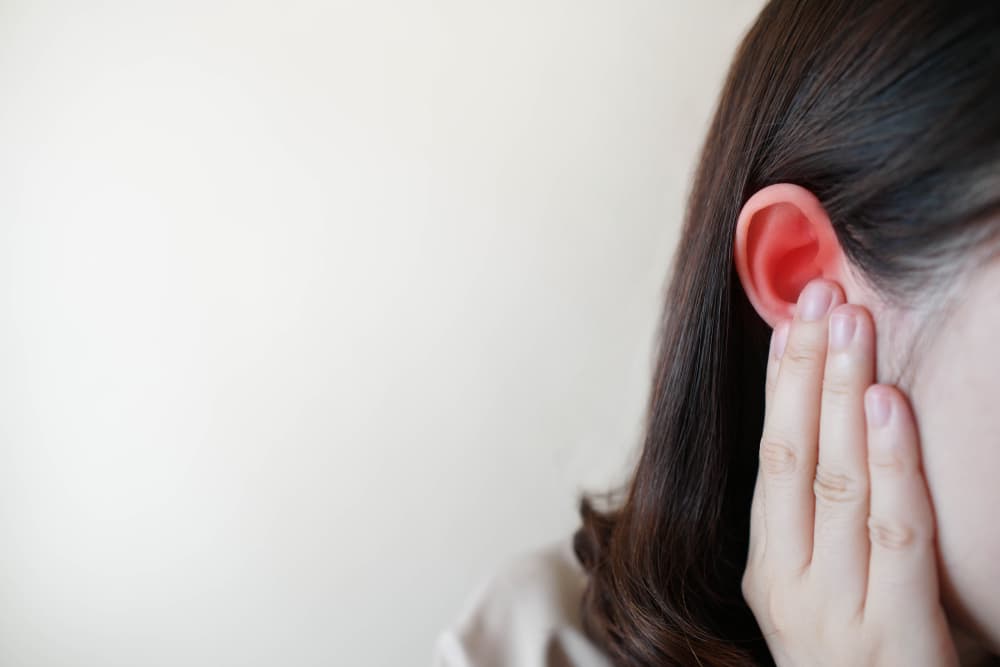 Tinnitus is the perception of sound when no external source of sound is actually present. Roughly 1 in 5 people with the condition experience bothersome tinnitus, a more severe form that can cause distress and negatively impact on the quality of life and functional health.
Tinnitus is the perception of sound when no external source of sound is actually present. Roughly 1 in 5 people with the condition experience bothersome tinnitus, a more severe form that can cause distress and negatively impact on the quality of life and functional health.
Tonsil or adenoid infection
 The tonsils and adenoids in the throat are part of the immune system. Their role is to sample bacteria and viruses that enter the body through the nose and mouth, but they can be prone to recurrent infections, which might lead to surgery.
The tonsils and adenoids in the throat are part of the immune system. Their role is to sample bacteria and viruses that enter the body through the nose and mouth, but they can be prone to recurrent infections, which might lead to surgery.
Vertigo and dizziness
 Dizziness is a general term for describing sensations of light-headedness and imbalance. Vertigo is a specific form of dizziness involving a spinning sensation or a feeling of falling when there is no motion. Conditions affecting the central nervous system and organs in the inner ear can cause vertigo.
Dizziness is a general term for describing sensations of light-headedness and imbalance. Vertigo is a specific form of dizziness involving a spinning sensation or a feeling of falling when there is no motion. Conditions affecting the central nervous system and organs in the inner ear can cause vertigo.
Voice disorders
Many conditions, including injury to the vocal cords, viruses, cancer, and recurrent chronic acid reflux, can result in voice disorders. Diseases can result in hoarseness, lower vocal pitch, vocal fatigue, and complete loss of the voice.
How much does an otolaryngology surgery procedure cost?
Otolaryngology surgery costs a varying amount depending on the type of condition, how often you need treatment, and the cost of anaesthesia. The table below shows you the cost of some procedures. These figures are taken from the fee benchmarks for private sector surgeon fees, updated as of 13 November 2018 at the time of writing this article. [8]
Procedure
Cost (Private Sector)
Nose, Nasendoscopy
$160-$380
Ear, Tympanic membrane, a myringotomy (unilateral/bilateral), with/without tube*
$440-$3450
Sinuses-Nasal, infection, functional Sinuscopic Ethmoidectomy (unilateral/bilateral)*
$5050-$9150
Sinuses-Nasal, various lesions, frontal-nasal ethmoidectomy with/without Sphenoidotomy
$6700-$10300
*Note: Surgery that is bilateral or with a tube is more expensive.
What can I expect from the first visit to an otorhinolaryngology surgeon?
 I will take a complete medical history. It will help me if you have made note of your symptoms so that you don’t forget to mention anything. Be sure to let me know when the symptoms first began. Depending on the reason for the visit, I will perform a physical and visual examination. This may include looking in your ears, nose, and your throat.
I will take a complete medical history. It will help me if you have made note of your symptoms so that you don’t forget to mention anything. Be sure to let me know when the symptoms first began. Depending on the reason for the visit, I will perform a physical and visual examination. This may include looking in your ears, nose, and your throat.
Which otorhinolaryngology surgeries are Medisave claimable?
This depends largely on your type of insurance, the level of coverage providers and whether there is a presence of exclusions of certain medical conditions. Certain procedures like nasendoscopy are Medisave claimable, in this example ranging from around $200 to $600 depending on whether it is a public or private clinic. If you have insurance, some private doctors allow a direct charge to your insurance company if it is covered. [9] [10]
What should I look out for when deciding on which Otorhinolaryngology Surgeon to go to?
Get Referrals
Start with a referral list from your primary care doctor. You can also ask family, friends and other healthcare providers for recommendations.
Research
Board certification is one of the most important factors to consider when you are choosing an otorhinolaryngology surgeon. It tells you that the doctor has the necessary training, skills, and experience to provide healthcare in otolaryngology.
Consider the experience
Experience matters when it comes to preventing or treating a health condition. The more experienced, the better your results are likely to be.
Research hospital quality

Your doctor’s hospital is the hospital that will care for you. Consider the quality of care at the hospital where the doctor treats patients.
Evaluate communication style
Choose a doctor with whom you are comfortable talking and who supports your information needs. When you first meet the doctor, ask the question and notice how he or she responds.
Conclusion
I have shared with you how a doctor trains to become a specialist in the Ears, Nose, and Throat (ENT), formally known as the field of otorhinolaryngology. I hope you now know about the different specialities and the range of treatments that you can go for if you face one or more of the diseases listed above. These treatments vary in cost, so do talk to your doctor about whether or not Medisave and insurance can be claimed!
